International
Russia and Ukraine looking for compromise in peace talks
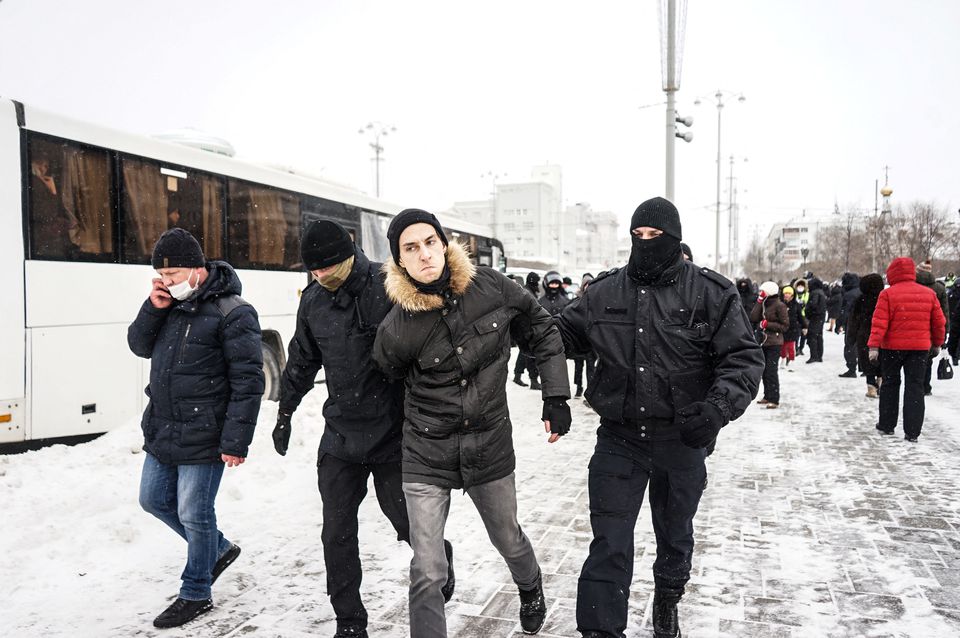
KYIV/LVIV, Ukraine, March 16 (Reuters) – Russia and Ukraine both emphasized new-found scope for compromise on Wednesday as peace talks were set to resume three weeks into a Russian assault that has so far failed to topple the Ukrainian government.
Ukraine’s President Volodymyr Zelensky said the talks were becoming “more realistic”, while Russian Foreign Minister Sergei Lavrov said there was “some hope for compromise”, with neutral status for Ukraine – a major Russian demand – now on the table.
The Kremlin said the sides were discussing status for Ukraine similar to that of Austria or Sweden, members of the European Union that are outside the NATO military alliance.
Three weeks into the invasion, Russian troops have been halted at the gates of Kyiv, having taken heavy losses and failed to seize any of Ukraine’s biggest cities in a war Western officials say Moscow thought it would win within days.
Ukrainian officials have expressed hope this week that the war could end sooner than expected – even within weeks – as Moscow was coming to terms with a lack of fresh troops to keep fighting.
Talks were due to resume on Wednesday by video link for what would be a third straight day, the first time they have lasted more than a single day, which both sides have suggested means they have entered a more serious phase.
“The meetings continue, and, I am informed, the positions during the negotiations already sound more realistic. But time is still needed for the decisions to be in the interests of Ukraine,” Zelensky said in a video address overnight.
On Tuesday, Zelenskiy had hinted at a possible route for a compromise, suggesting Ukraine would be willing to accept international security guarantees that stopped short of its longstanding hope for full admission to the NATO alliance.
Keeping Ukraine out of NATO was long one of Russia’s main demands, in the months before it launched what it calls a “special operation” to disarm and “denazify” Ukraine.
“The negotiations are not easy for obvious reasons,” Lavrov told media outlet RBC news. “But nevertheless, there is some hope of reaching a compromise.”
“Neutral status is now being seriously discussed along, of course, with security guarantees,” Lavrov said. “Now this very thing is being discussed in negotiations – there are absolutely specific formulations which in my view are close to an agreement.”
Kremlin spokesman Dmitry Peskov said a demilitarised Ukraine with its own army, along the lines of Austria or Sweden, was being looked at as a potential compromise. They are the biggest of six EU countries that are outside NATO.
“This is a variant that is currently being discussed and which could really be seen as a compromise,” Peskov was quoted as saying by RIA news agency.
The head of Ukraine’s negotiating team, Zelenskiy’s aide Mykhailo Podlolyak, tweeted ahead of Wednesday’s resumption of talks that Ukrainian military counteroffensives had “radically changed the parties’ dispositions”.
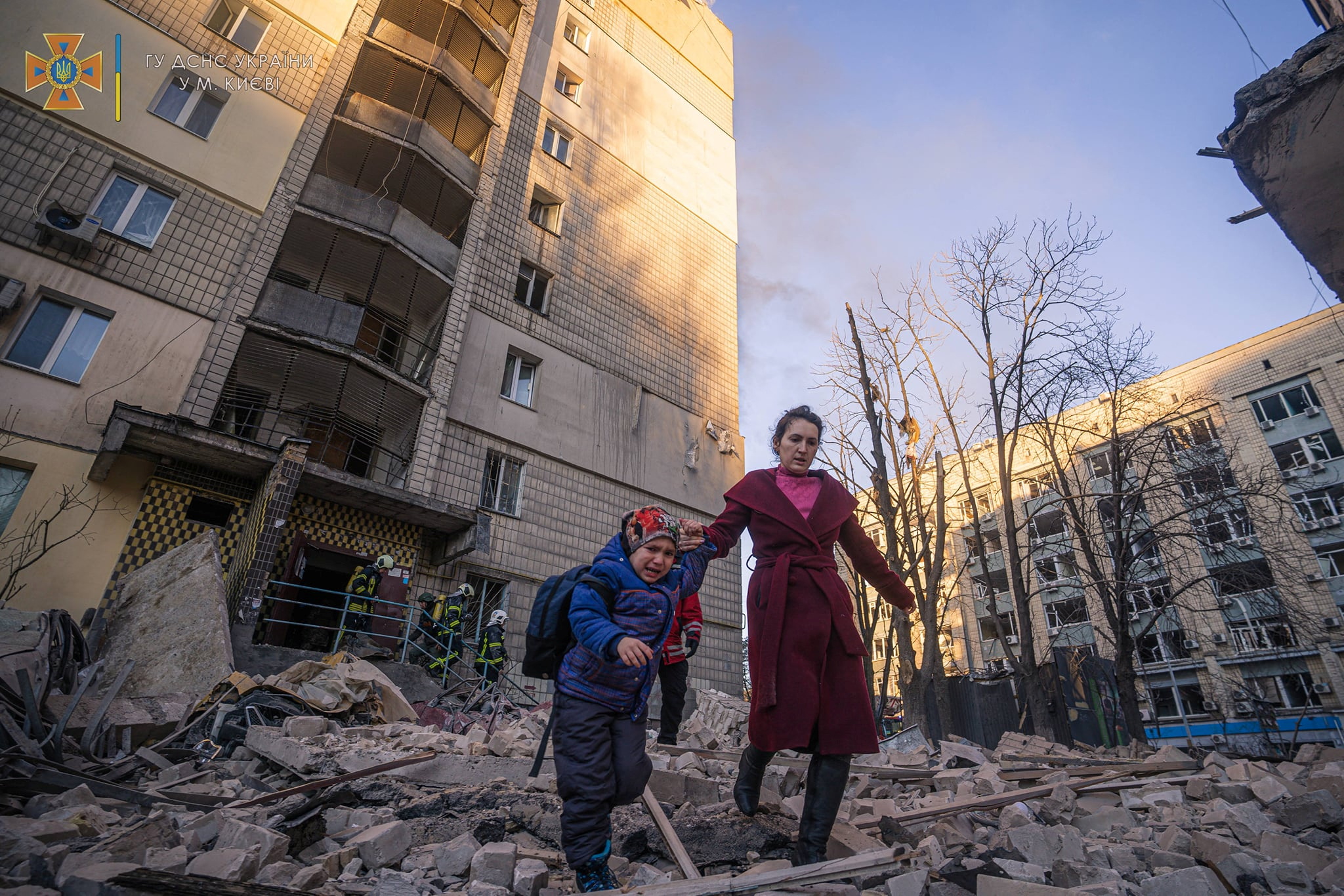
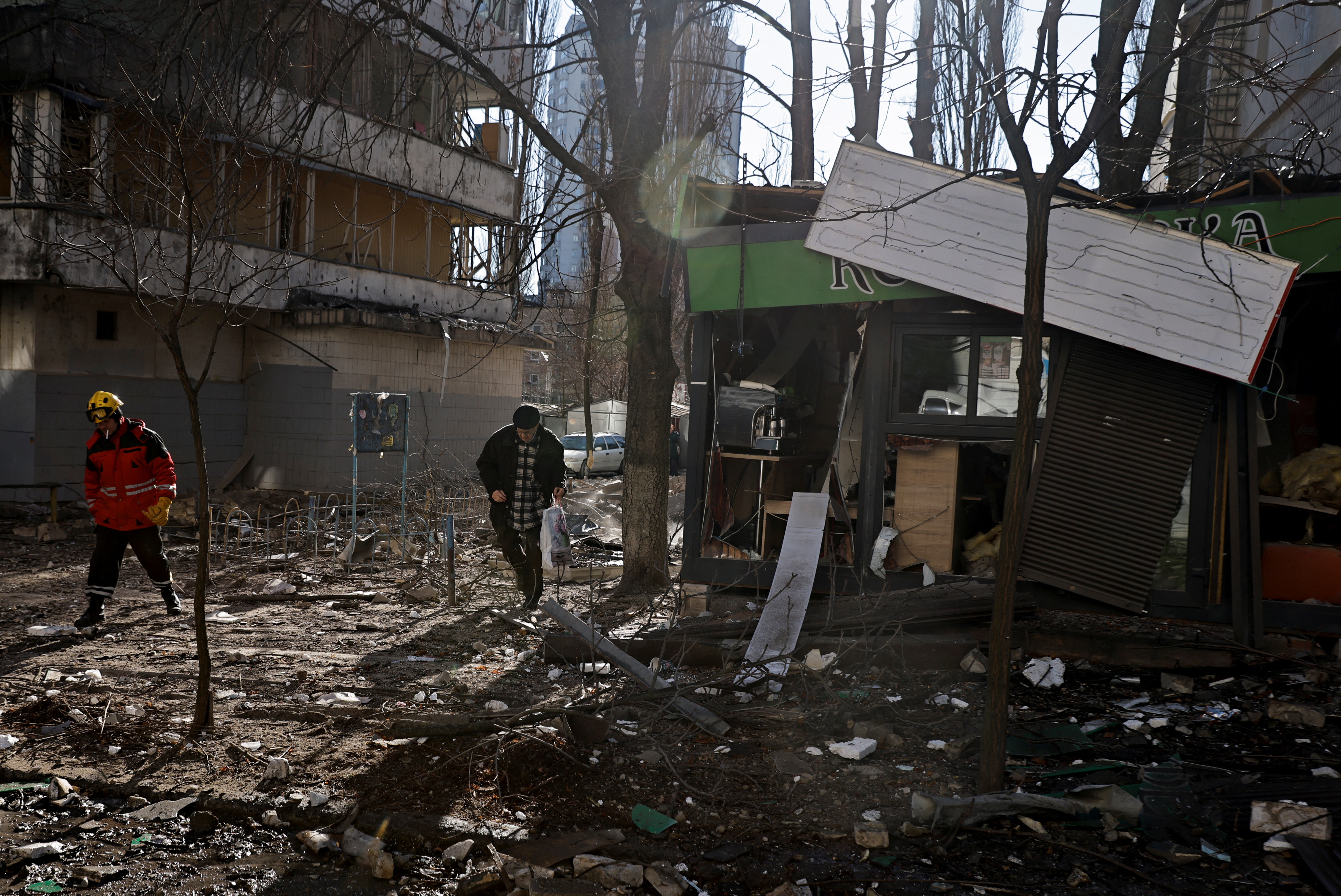
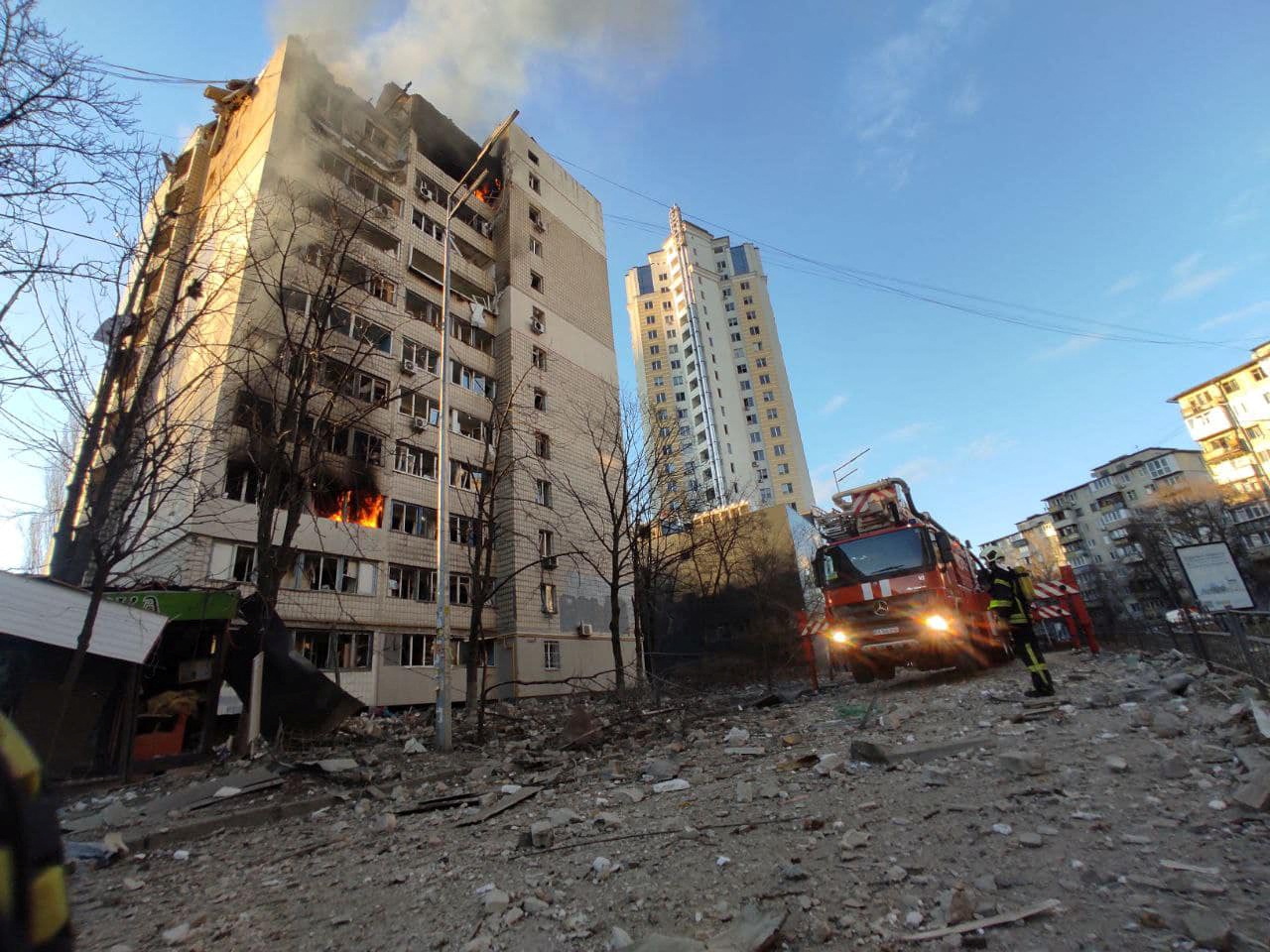
1/10
A resident walks through debris next to a building that was hit by shelling, as Russia’s attack on Ukraine continues, in Kyiv, Ukraine March 16, 2022. REUTERS/Thomas PeterRead More
In an intelligence assessment released on Wednesday, Britain said Russian forces were trapped on roads, struggling to cope with Ukrainian terrain and suffering from a failure to gain control of the air.
“The tactics of the Ukrainian Armed Forces have adeptly exploited Russia’s lack of maneuver, frustrating the Russian advance and inflicting heavy losses on the invading forces,” it said.
THREE MILLION REFUGEES
Europe’s biggest invasion since World War Two has destroyed some Ukrainian cities and sent more than 3 million refugees fleeing abroad.
The streets of the capital Kyiv were largely empty on Wednesday after authorities imposed a curfew overnight. Several buildings in a residential area were badly damaged after what appeared to be a Russian missile was shot down in the early hours of Wednesday, residents and emergency workers said.
There was no immediate word on casualties as a specialist rescue team searched for signs of life amid the rubble. Surrounding streets were covered with broken glass from hundreds of windows shattered in a wide area. What appeared to be a motor from the missile lay twisted on the roadside.
Still, Ukrainian forces have withstood an assault by a much larger army. Zelenskiy said Ukrainian troops had killed a fourth Russian major general in the latest fighting. Reuters was not immediately able to verify his statement.
“The occupiers were not successful today, although they threw thousands of their people into battle, in the north, in the east, in the south of our state. The enemy lost equipment, hundreds more soldiers. A lot of dead Russian conscripts, dozens of officers.”
Ukraine said about 20,000 people had managed to escape the besieged port of Mariupol in private cars, but hundreds of thousands remain trapped under relentless bombardment, many without heating, power or running water.
Deputy Prime Minister Iryna Vereshchuk said it was not clear whether the humanitarian corridor to the city would open on Wednesday. She said 400 staff and patients hostage was being held hostage at a hospital Russian forces had captured in Mariupol on Tuesday.
The prime ministers of Poland, the Czech Republic, and Slovenia were due home on Wednesday after an overnight journey out of Kyiv by train. They met Zelenskiy in the Ukrainian capital on Tuesday in the first visit of its kind since the war began, a symbol of the Ukrainian administration’s success so far in withstanding the Russian assault.
Zelenskiy was due to address the U.S. Congress later on Wednesday by video link, having made similar appearances in parliaments across Europe. The White House said U.S. President Joe Biden would make his first visit to Europe since the invasion next week to discuss the crisis with NATO allies.
The conflict has brought economic isolation upon Russia and the economic cost was fully exposed on Wednesday, as its sanctions-ravaged government teetered on the brink of its first international debt default since the Bolshevik revolution.
Moscow was due to pay $117 million in interest on two dollar-denominated sovereign bonds it had sold back in 2013, but it faces limits on making payments and has talked of paying in roubles, which would trigger a default.
International
24 Killed in Israeli Strikes Despite Gaza Ceasefire
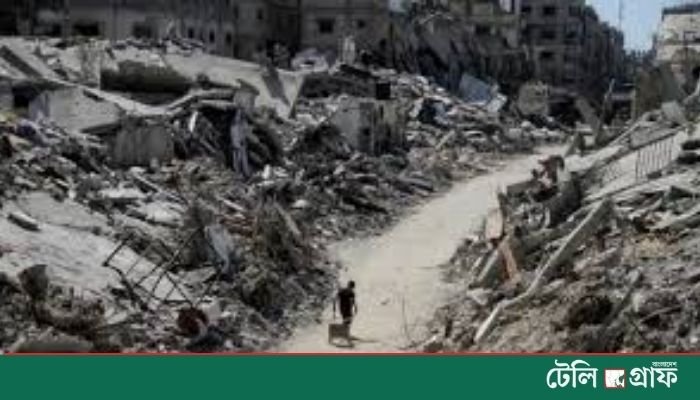
Despite a six-week-long ceasefire in the Gaza Strip, at least 24 Palestinians have been killed in renewed Israeli air and drone strikes. The attacks, which began early Saturday, also left 87 others injured, according to local health authorities. Children are reported to be among the dead.
Witnesses said the first strike targeted a car in northern Gaza City, followed by successive attacks in Deir al-Balah and the Nuseirat refugee camp. In Gaza City’s Rimal area, a drone strike killed 11 people and injured 20 others. Rami Muhanna, director of Al-Shifa Hospital, confirmed that many of the wounded remain in critical condition.
In Deir al-Balah, a strike on a residential house left three people dead, including a woman. The blast was so powerful that nearby residents fled in panic. “This cannot be called a ceasefire,” said eyewitness Khalil Abu Hatab. “There is no safe place left.”
Hamas has accused Israel of repeatedly violating ceasefire terms and has urged the United States to intervene immediately. The group claims the strikes are targeting civilians and called for stronger international action to halt the attacks.
International observers warn that the renewed violence could escalate tensions further amid Gaza’s deepening humanitarian crisis.
International
Trump Designates Saudi Arabia a Major Non-NATO Ally at White House Dinner
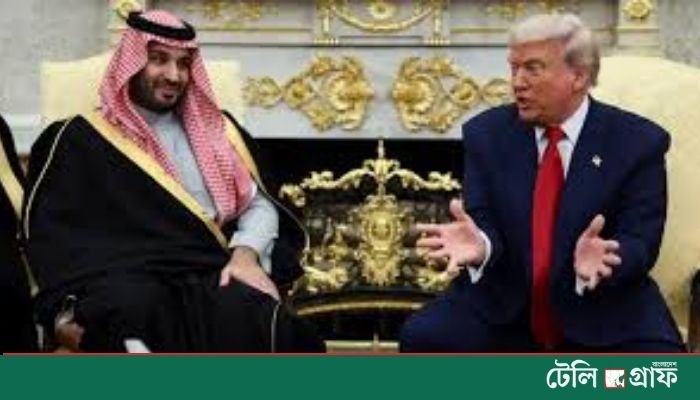
The United States has designated Saudi Arabia as one of its most important non-NATO military allies, President Donald Trump announced on Tuesday during a White House dinner held in honour of Saudi Crown Prince Mohammed bin Salman, according to Al Jazeera.
Trump said the official designation as a Major Non-NATO Ally would elevate military cooperation between the two countries. The United States has granted this status to only 19 nations so far. He added that the decision had been kept confidential until the event at Saudi Arabia’s request.
The President also noted that the Crown Prince would play a role in a council being formed to establish peace in Gaza, adding that he himself would serve as its chairman, as previously stated.
Earlier, Crown Prince Mohammed bin Salman arrived in the United States for the meeting. Discussions covered military cooperation, nuclear technology, artificial intelligence, and increased Saudi investments in the US. The Crown Prince announced plans to raise Saudi investments from 600 billion USD to 1 trillion USD.
Talks also included potential sales of advanced F-35 fighter jets to Saudi Arabia.
International
Al-Aqsa’s Chief Preacher Faces Trial in Israel Over ‘Incitement’ Charges
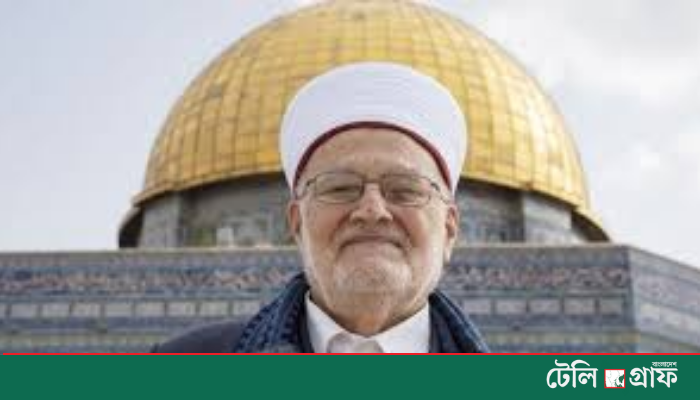
Israel is set to put Sheikh Ekrima Sabri, the chief preacher of the Al-Aqsa Mosque in East Jerusalem, on trial over alleged “incitement.” The 86-year-old cleric is scheduled to appear before the Jerusalem Magistrate Court on Tuesday (18 November), according to a report by Anadolu Agency.
The court will review an indictment filed by the Israeli Public Prosecution, accusing Sabri of expressing condolences over the death of Hamas leader Ismail Haniyeh—killed in an Israeli strike in Iran in 2024—and offering prayers for Palestinians shot dead in the occupied West Bank in 2022.
In August 2024, Israeli police barred Sabri from entering Al-Aqsa for six months after he publicly mourned Haniyeh’s death. His legal team argues that the move is politically motivated and driven by right-wing groups seeking to target the prominent cleric.
They claim Sabri has long faced travel bans, restrictions on entering Al-Aqsa, and even demolition orders on his home—actions they describe as part of a broader pattern of political, religious, and ideological persecution.
Israeli officials, including National Security Minister Itamar Ben-Gvir and Interior Minister Moshe Arbel, have previously acted against Sabri, frequently accusing him of delivering pro-Gaza sermons.
Al-Aqsa, Islam’s third-holiest site, sits in a location Jews refer to as the “Temple Mount,” believed to have housed two ancient Jewish temples. Israel captured East Jerusalem in the 1967 Arab–Israeli war and unilaterally annexed the city in 1980—a move not recognized by the international community.
-
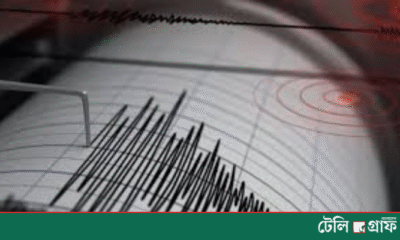
 People and Culture2 days ago
People and Culture2 days agoStrong Quake Shakes Bangladesh: Seven Dead, Hundreds Injured
-

 Crime and Justice2 days ago
Crime and Justice2 days agoBangladeshi Passenger Held at Benapole with Large Sum of Foreign Currency
-

 Economy22 hours ago
Economy22 hours agoGiant 32-kg Poa Fish Caught Near St Martin’s; Fisherman Demands Tk 600,000
-

 CRICEKET2 days ago
CRICEKET2 days agoThree Bangladeshi Stars Register for Women’s IPL Mega Auction in Delhi
-
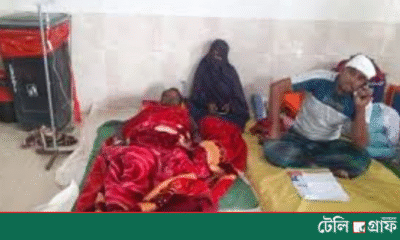
 People and Culture23 hours ago
People and Culture23 hours agoWedding Invitation Dispute Sparks Violent Clash in Jhenaidah; 10 Injured
